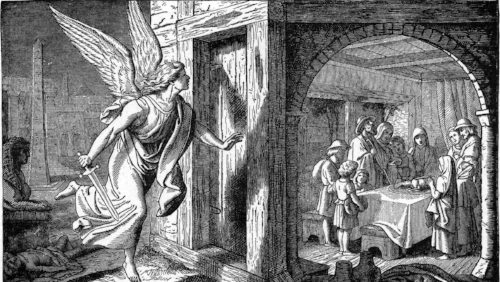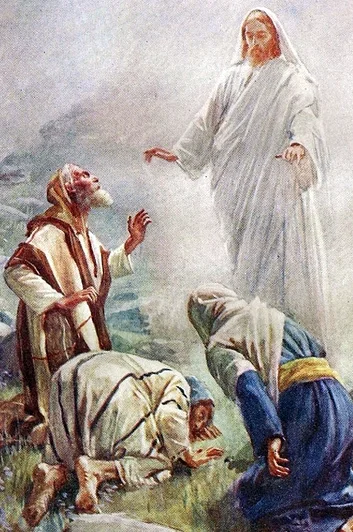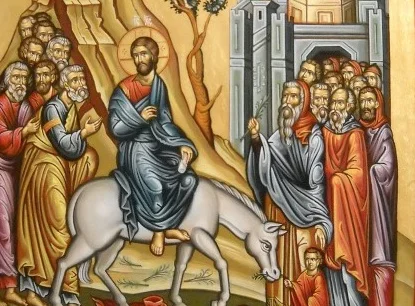“What the Bible is rather silent on is sexual relationships between two unmarried but committed and consenting people. Except in Song of Solomon. Here, we have a love story in its many facets. There is no judgement and no condemnation. And no guarantee of marriage. And we don’t know what to do with it. And that’s a tragedy.”
"Mind your own damn business, Peter!" (John 21:20-24) [A Guest Card Talk]
“Good Christians regularly raise unspoken prayer requests for__________” A Creed Card Talk/Reflection
Silence reigns as everyone awkwardly stares at the floor, the ceiling, and into the ethereal middle distance between eyes. The clever ones bow heads and pretend to pray. But all are individually thinking about that thing draining their minds of life. That thing they will not share with the rest of the group.
The unspoken prayer request is a staple of protestant youth groups, CCD classes, college Bible studies, and church small groups. They are what remain after the public prayers are heard. They are the shame of our crisis. The sin we pretend is private. The blessing we fear will sound like a brag. The worry we hide. The sum total of all we don’t want others to know about us because we’re afraid of what they will think:
"I don’t want them to know that I struggle with this . . .”
“My problems are not as important as what she just said . . .”
“They’ll know I think about those things . . .”
“They will think that I am just complaining . . .”
“This too will pass. No need to have other people involved . . .”
and besides,
“God knows what’s in my heart, so I don’t have to say it out loud.”
This last is the most Hell worthy, pretending to be holy, bullshit, cop-out we know.
To be clear: There are things you should keep to yourself. Sometimes, in some places, in some contexts, you should keep your God-loving mouth shut. But beyond those times of wise silence who do you trust? Who are you talking to about that-which-shall-not-be-named? If the answer is “no one,” your state of affairs is so much worse than you may have imaged.
The concept of the 3am friend is nothing new: the person you can call at three in the morning and they will be there physically, emotionally, and/or spiritually. The entire legal system in the Hebrew Bible was predicated on relationships within community, in terms of both not doing to others what you would have done to you, as well as the mitzvoth— acts of love and service— done not only for family, superiors, and social equals, but the marginalized and liminal: the poor, the widow, the orphan, the stranger.
We know that two heads are better than one, in work, in love, in laughter, in sadness. When we fall we need someone to lift us up, and God help the person who falls when they are alone. Even better is group of friends, for a threefold cord is not quickly broken (Ecclesiastes 4:9-12).
We know that healing comes through talking about our faults and troubles, and through praying with others (James 5:16); we know that time spent with other of the same mind is how we can push each other to do better in life (Hebrews 10:24-25); and we know that with all the talk about forgiving each other (Matthew 6:12-14, Mark 11:25, Luke 17:3-4, 2 Corinthians 2:10-11, Ephesians 4:32, Colossians 3:13) , know that we are called to love one another (John 13:34).
But to love each other we must allow others to love us. We must love ourselves by allowing other people into our lives. We must accept grace as much, if not more than, we extend it to others.
Perhaps we need to re-examine the value of friendship and community. We can’t go it alone. At least not well and not for long.
But what do we know. We made this game and you probably think we’re going to Hell.
buzzfeed.com
Getting stoned for playing pick-up sticks on the Sabbath. (Numbers 15:32-36)
A bedtime story from childhood:
Once upon a time, the Children of Israel were in the wilderness (of course) and they found a man picking up sticks on the Sabbath. So they brought him before Moses, Aaron, and all the people, but they had no idea what to do with him. Then God said to Moses, “take him outside and bludgeon him to death with big freaking rocks!” So they did. Night night.
But there is more to the story than a mindless mob bent on following the bloodthirsty whims of a capricious deity. As always, let’s look at the context. Let’s start with the offense itself.
Picking up sticks? (Really God. U mad Son?) In His divine defense, God made it very clear that He would not abide work on the Sabbath. On Sinai He put it in the Ten Commandments, then added the death penalty, and then repeated it one more time for the cheap seats at the base of the mountain.He might have been serious. Hence the confusion of those who caught their Israelite brother picking up sticks on the Sabbath, in terms of what to do with him:
“Would you look at this idiot? It’s the Sabbath”
“I know, right?”
“Moron.”
“So.”
“So?”
“Do we kill him?
“He’s just picking up sticks!”
“Have you read anywhere in the Torah where it says ‘do no work on the Sabbath, except picking up sticks, ‘cause YHWH is completely cool with stick gathering despite His irrevocable law.’?”
“You know I can’t read.”
“Right. Me either. But we’ve heard what the Torah says.”
“Yeah.”
“Yeah.”
“You gonna cast the first stone?”
“Let’s just bring him to Moses.”
“Sounds like a plan.”
But let’s take a step backward.
The verses preceding the narrative are instructions for when an individual or the community has committed an unintentional sin. What you do when an “oops, I crapped my spiritual pants” moment arises, Numbers 15:22-29 clearly spells out what should be done to clean up the mess. (c.f. Leviticus chapter 4; 5:1-6:7; 6:24-30 & 7:1-10 ) Earlier in the book (chapter 5) instructions for intentional sins are given. (c.f. Leviticus chapter 1 & 6:8-13) In short, we aren’t perfect. We will screw up: intentionally and unintentionally. But we can make it right. The Torah has that all covered.
But this short narrative speaks of something different. This is not merely referring to intentional or unintentional sin. This deals with the person who has been confronted with their sin and raises a stiff middle finger to God and community.
The heart of the picker-upper of sticks is shown in two ways. First the narrative follows how sins can be forgiven (vs 22-29), as well as the death sentence for those who refuse to avail themselves of it, which is the legal preamble to the story:
But whoever acts high-handedly, whether a native or an alien, affronts the Lord, and shall be cut off from among the people. Because of having despised the word of the Lord and broken his commandment, such a person shall be utterly cut off and bear the guilt. (Numbers 15:30-31)
Second, it is confirmed by the Judge of his sentence: God orders the man’s death, not the people. God who knows the heart.This is a matter of repentance and remorse: whether or not the individual actually gives a good God’s damn or a damn about a good God.
No matter what you feel about the punishment itself, the sentiment is simple: there are things you do and do not do in community. You knew the rules. You knew the consequences. But you flagrantly broke them. And what’s worse, you don’t care that you did.
Actions have consequences. Sometimes dire ones.
Perhaps this is why after a Psalmist meditated on the effects of the Torah on his life— finding It more precious than gold and sweeter than honey from the honeycomb — he included the following request
Keep your servant also from willful sins;
may they not rule over me.
Then I will be blameless,
innocent of great transgression. (Psalm 19:13)
Perhaps we need to take stock of our actions and attitudes— providing less excuses and more accountability— because consequential reality can crush more completely than rocks.
But what do we know: we made this game and you probably think we’re going to Hell.



![O Come, O Come Emmanuel (Isaiah 7:14) [An Advent Card Talk]](https://images.squarespace-cdn.com/content/v1/55a9a1e3e4b069b20edab1b0/1483161046976-X5VJE3CMP9T957O72EII/3d-wallpapers-light-dark-wallpaper-35822.jpg)

![Unbridled Horniness (Most of Song of Solomon) [A Guest Card Talk]](https://images.squarespace-cdn.com/content/v1/55a9a1e3e4b069b20edab1b0/1535733116824-420M6V1INS2N9LLH33OH/r923481_9613492.jpg)
!["Mind your own damn business, Peter!" (John 21:20-24) [A Guest Card Talk]](https://images.squarespace-cdn.com/content/v1/55a9a1e3e4b069b20edab1b0/1524061927712-EKRICYNHHFN0GXDYMTZU/jesus+annoyed.jpg)

